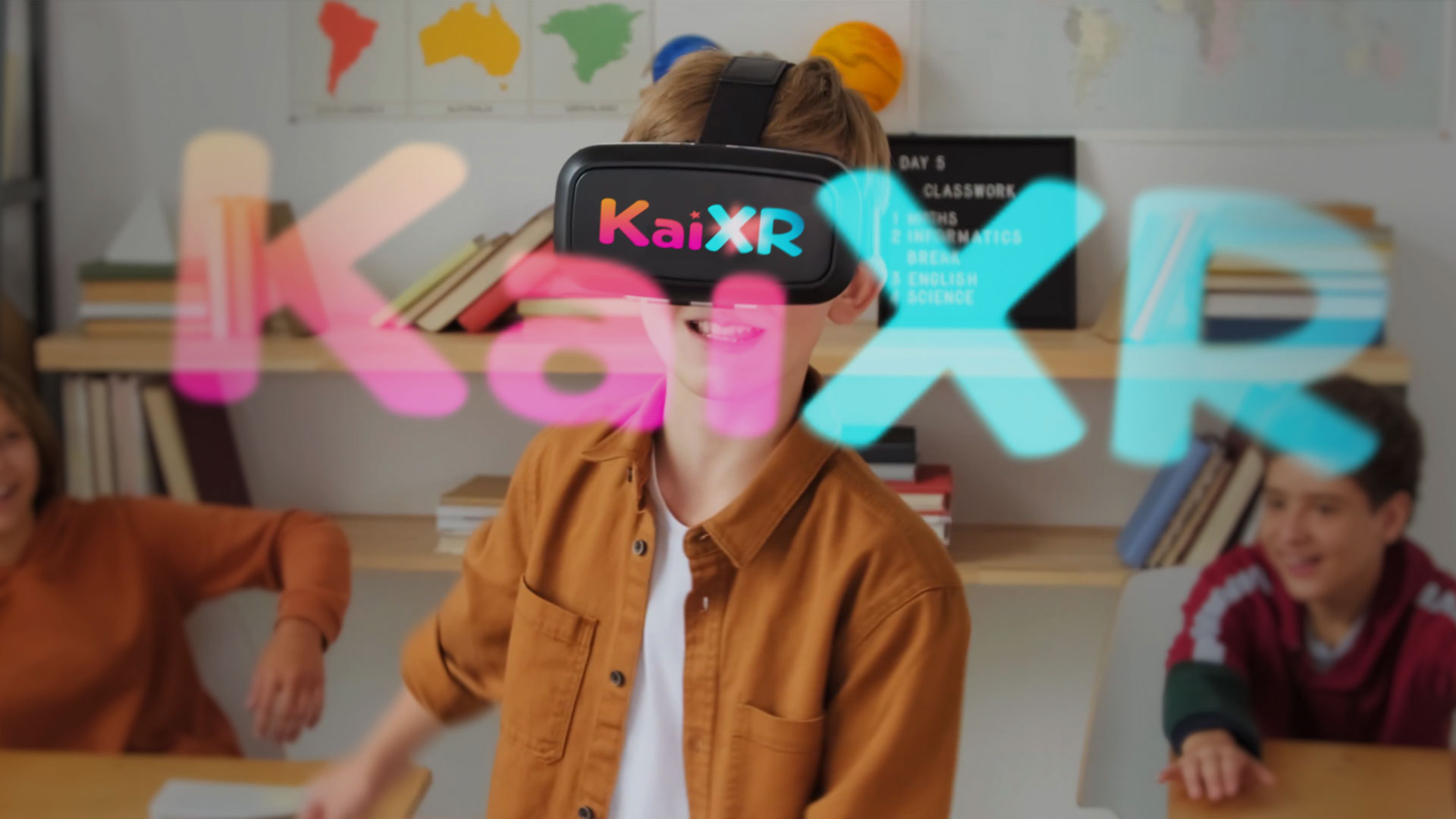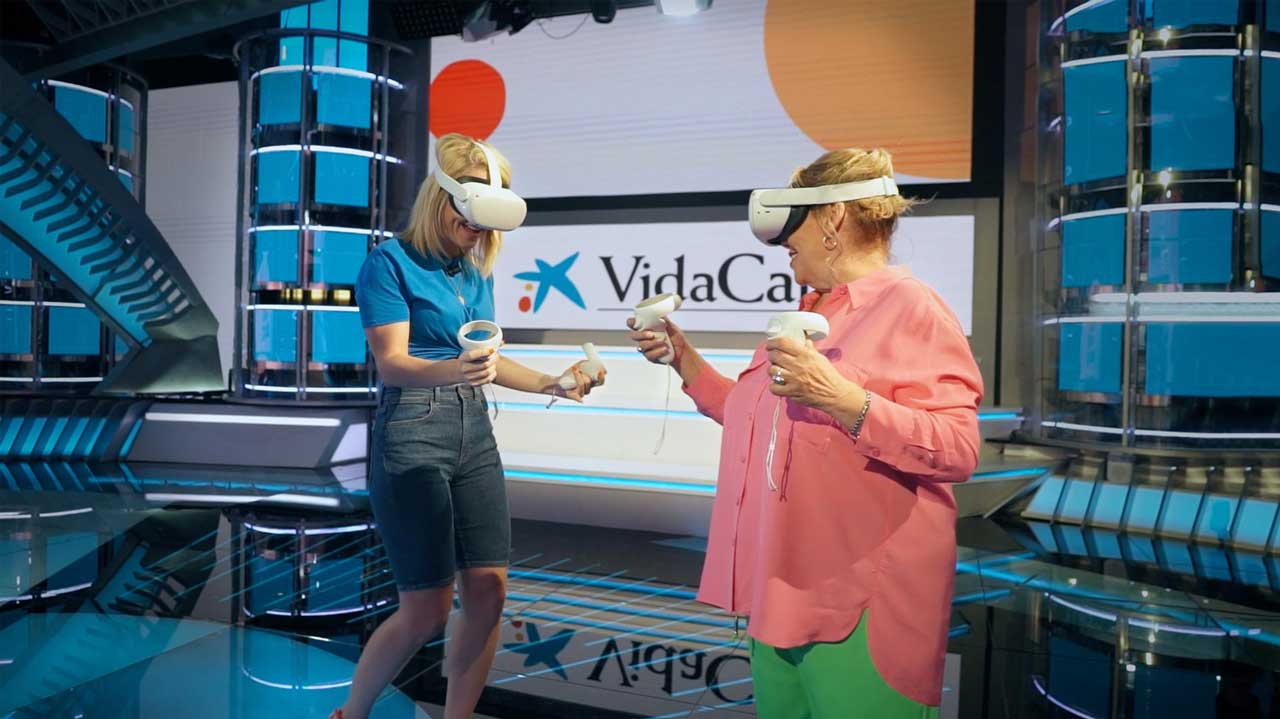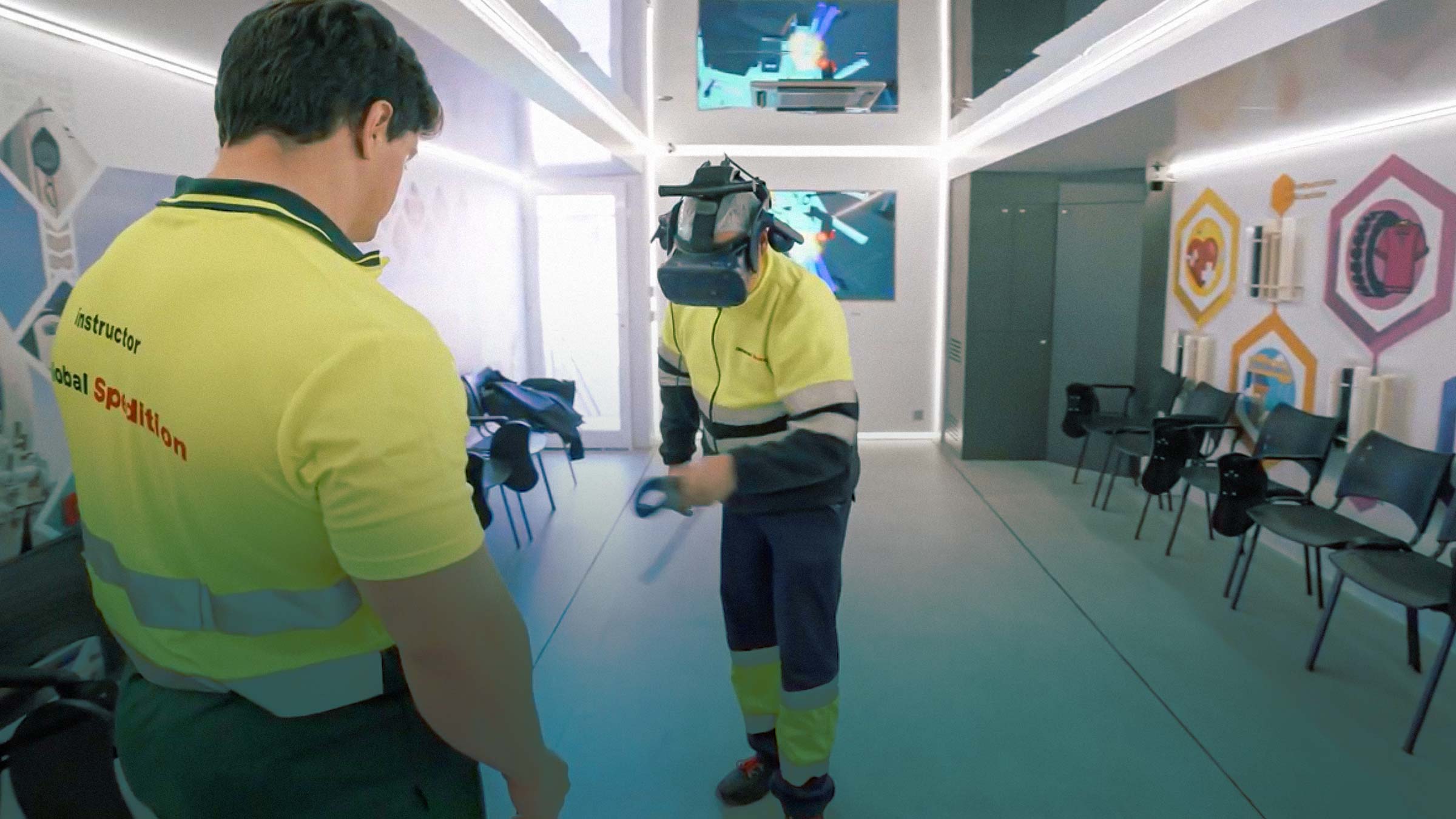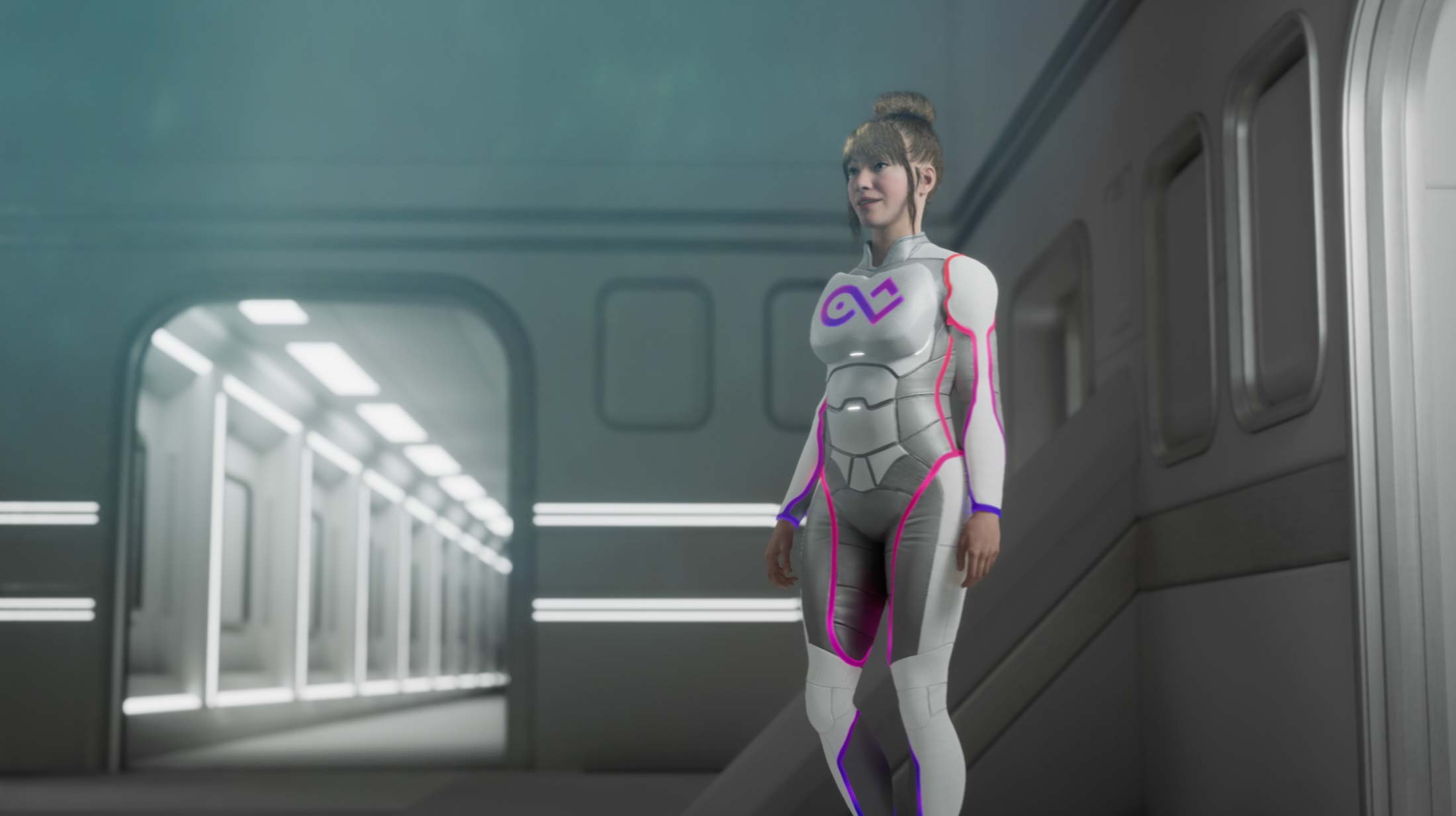Virtual Reality in video games: the future of entertainment
Virtual Reality has ceased to be just a science fiction concept and has become the great immersive technology that allows us to travel to a whole new digital universein which the users are in control.
In the video game and entertainment industry that means that fiction reaches the real world. The fourth wall is broken and the user becomes part of the game world.
In this article we want to go deeper into the video game industry's commitment to this immersive technology, the digital transformation that this sector is undergoing and the benefits, both in the present and for the future.
What is Virtual Reality?
Virtual Reality is the technology capable of immersing us in completely digital alternative worlds, where we, the users, are the ones who decide where to focus our attention. 3D environments in which our senses cease to perceive the real world, thanks to the total immersion through the Virtual Reality glasses (HMD or Head-Mounted Display) and its accessories.
The various remotes, gloves, headsets and haptic suits not only allow us to see, hear and feel these new digital experiences, they also offer us a great freedom of movement to enjoy the virtual universe.
Virtual Reality is just one of the immersive solutions encompassed within the Extended Reality. A series of technologies to which also belong the Augmented Reality and the Mixed Reality. Their origins and software are different, but their objective is similar: eliminating the barriers between the real and the virtual.
While Virtual Reality transports users to the fully artificial 3D spacesIn Augmented Reality, the real world is still shown, but with virtual elements superimposed on reality.
On the other hand, the Mixed Reality is the result of the combination of the two previous technologies, where users can interact with these digital elements superimposed on the physical world. A technology that we can also see in Spatial Computing.
Evolution of videogame development and Virtual Reality
From the earliest developments, the video game industry has been gradually introducing technological advances in its entertainment experiences. Wireless controllers, motion recognition systems, high-definition screens...
Currently, the world of video games is in the process of introducing a new technology that is forever changing the way we understand gaming: the Virtual Reality.
As mentioned before, Virtual Reality not only immerses you in a whole new world, but also in a whole new world. makes you the protagonist of the story. A leap into first person and immersive 100% experiences that changes the dynamics of video games.
Players feel part of the game world, their senses adapt to this new 360º space and they can even look into the eyes of the other characters in the video game. Undoubtedly, significant changes that mark a before and after in the entertainment industry.
You can learn more about this topic in our post→ Technology trends in amusement parks: Virtual Reality.
Benefits of Virtual Reality in video games
Virtual Reality has revolutionized the how gamers experience digital entertainmentThis has brought with it a series of benefits for the videogame industry that can be summarized as follows:
Increased immersion level
Virtual Reality (VR) transports players into the heart of the video game, making them feel truly part of the game and the action. With detailed three-dimensional environments and the ability to interact with the whole space as if they were real, Virtual Reality transforms the gaming experiencemaking each decision feel more impactful and meaningful.
If we add to this the incorporation of haptic suits and glovesThe level of immersion increases even more: the video game is no longer only seen and heard in first person, it is also felt.
See involves our whole body, movements and sensesas in the Frozen Emotion immersive experiencewhere, by combining Virtual Reality with the installation of the phygital of a physical bridge, users feel the adrenaline rush of crossing a bridge high in the snow-capped mountains.
Increased interaction
The virtual world of the video game opens up a whole new range of actions, decisions and interactions within the game. Players can explore space at your own pace and in the first personmanipulating objects and even communicating with the characters in a much more natural and interactive way through virtual avatars.
If, in addition, these avatars are endowed with Artificial Intelligenceinteraction is multiplied, as these video game AI avatars, NPCs, are able to interact with the players themselves. With training, context and prior information that allows it to adjust to the needs and open-ended actions that users perform during the game.
Gamification of the business world
Beyond video games and the world of entertainment, Virtual Reality and its game mechanics are also reaching the more business-oriented sectors thanks to the gamification. This trend consists of transfer the dynamics of video games to professional education and training, as well as to VR testing and training simulations.
Gamification coupled with Virtual Reality offers an attractive and effective way of training skills in controlled but realistic environments. As in the Global Spedition Virtual Trainings for the prevention of occupational hazards or the pharmaceutical company Boehringer Ingelheim for the training of healthcare workers in the preparation of their new drugs.
You may be interested in → Digital leisure as a new form of entertainment.
Examples of Virtual Reality video games
Virtual Reality is a before and after in the way we consume multimedia content, where immersion in the action makes the fourth wall disappear for the first time. immersing us in a whole universe of entertainment and action..
Below, we will look at some of the examples and the most relevant success stories in the area of Virtual Reality and video games:
- If there is something that Virtual Reality allows us to do, it is the possibility of travel to the past and the futureas in the Ibercaja Xplora immersive experience where users can discover the passage of time in the city of Zaragoza by crossing the 'Virtual Portal'.
- This virtual world allows connecting different entertainment industriesThe example? The virtual neighborhood of The Twists and Turns of Life. The first Spanish production to be recorded in the Metaverse and which also allows users to visit and discover its virtual scenarios for themselves.
- The development of video games in VR can also be brought to the marketing world and the customer experience. This is the case of the Foster's Hollywood VR Gamean immersive game launched for the scariest night of the year.
- Can you imagine competing in a virtual race? This is the case of the experience eRunner VR developed by Ibercaja to promote the Carrera Popular among digital natives. The goal? Attracting young audiences and take entertainment to the next level.
- The world of videogames and Virtual Reality are also linked to the culture and tourism. This is the case of the immersive experience of Loarre XRto visit virtually the Romanesque castle and, more recently, the experiential visit to the Zaragoza Aquariumdeveloped entirely for the glasses. Apple Vision Pro. Introducing Spatial Computing in the tourism sector.
- The world of video games also has a place in education and professional training. Thanks to the immersion and gamification of the dynamics of the game, the learning revolutionizes: involving students more, motivating and making the lesson more enjoyable. As in the Virtual Training developed by CEVA Velactis in the healthcare sector.
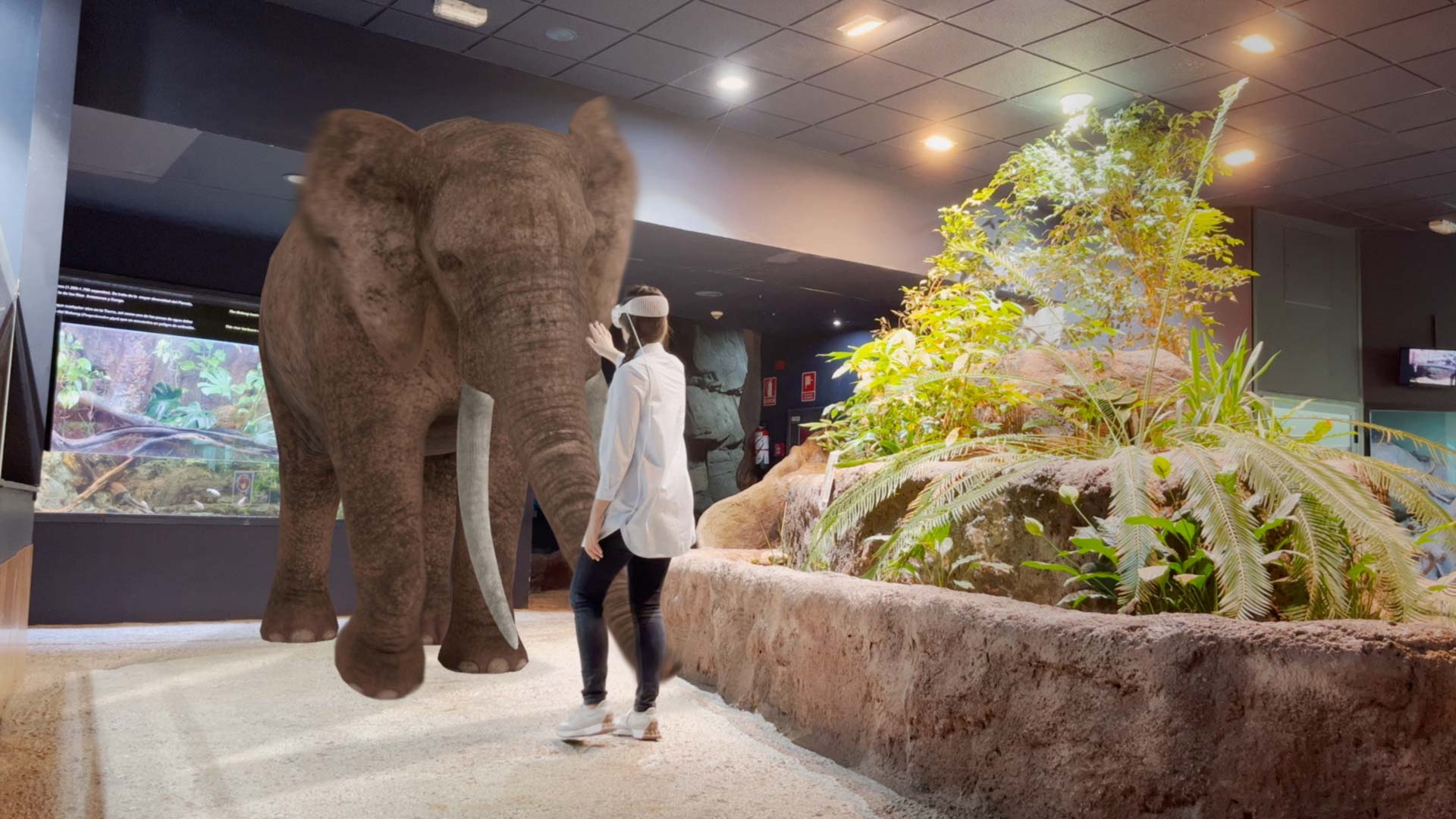
The future of video games in the Metaverse
Not only Virtual Reality is shaping the future of the video game industry, but also the major technological trend of the Metaverse and virtual worlds such as Fornite, Decentraland, Roblox or Spatial.
3D worlds, interactive, multiplayer, where the experience goes beyond the game, becoming a new socioeconomic space and communication channel for companies looking to connect with new generations.
Blockchain
In relation to the video game industry, we are witnessing the birth of new games and experiences like the play-to-earn video games. Games developed in the Metaverse and based on blockchain technology that allows players to earn money by buying and selling digital assets from the video game world, whether they are add-ons, terrains or avatars.
The majority of these video games require an initial investment in the form of cryptocurrencies or specific starter packages to start playing. From that moment on, the player takes control and decides how to play and what to do in this universe.
Artificial Intelligence
The future of videogames and entertainment in general, also involves the incorporation of the Artificial Intelligence. AI makes it possible to create more realistic, flexible and responsive characters and environmentsadapting in real time to the actions and decisions of the players.
Artificial Intelligence also makes it possible to develop more complex narratives that change and evolve, offering new levels of customization and adaptability.
Virtual Reality (VR) development for videogames
After more than 12 years in business, in Imascono we have specialized in the ideation, creation and development of all kinds of projects based on Virtual Reality with great examples in the world of entertainment and video games. In all of them we provide support both in the consulting part as well as in their installation, training and dissemination.
We accompany you throughout the entire process, from conceptualization to final implementation. We focus on understanding your specific objectives and requirements in order to offer you a Virtual Reality solution for companies efficient and high quality for your VR experience.
Our technical team of engineers and designers has a wide range of experience in the field. extensive experience in the development of Virtual Reality projects and its latest innovations. Contact with us and find out how we can help you develop your VR game.

